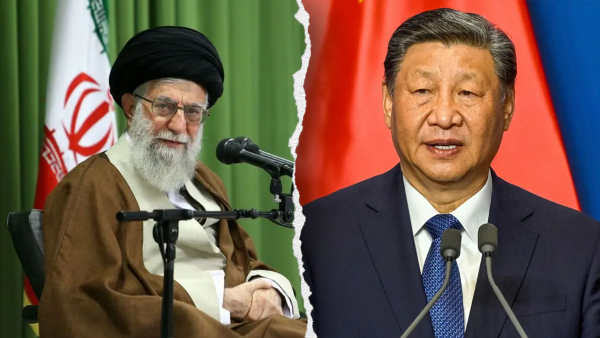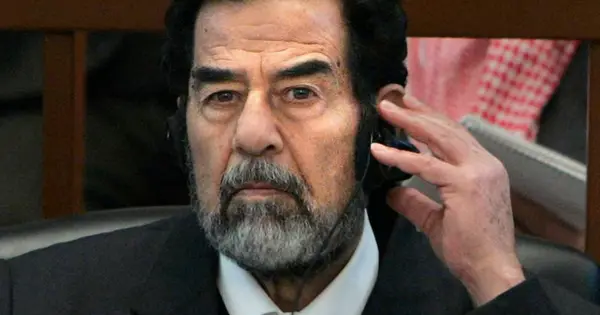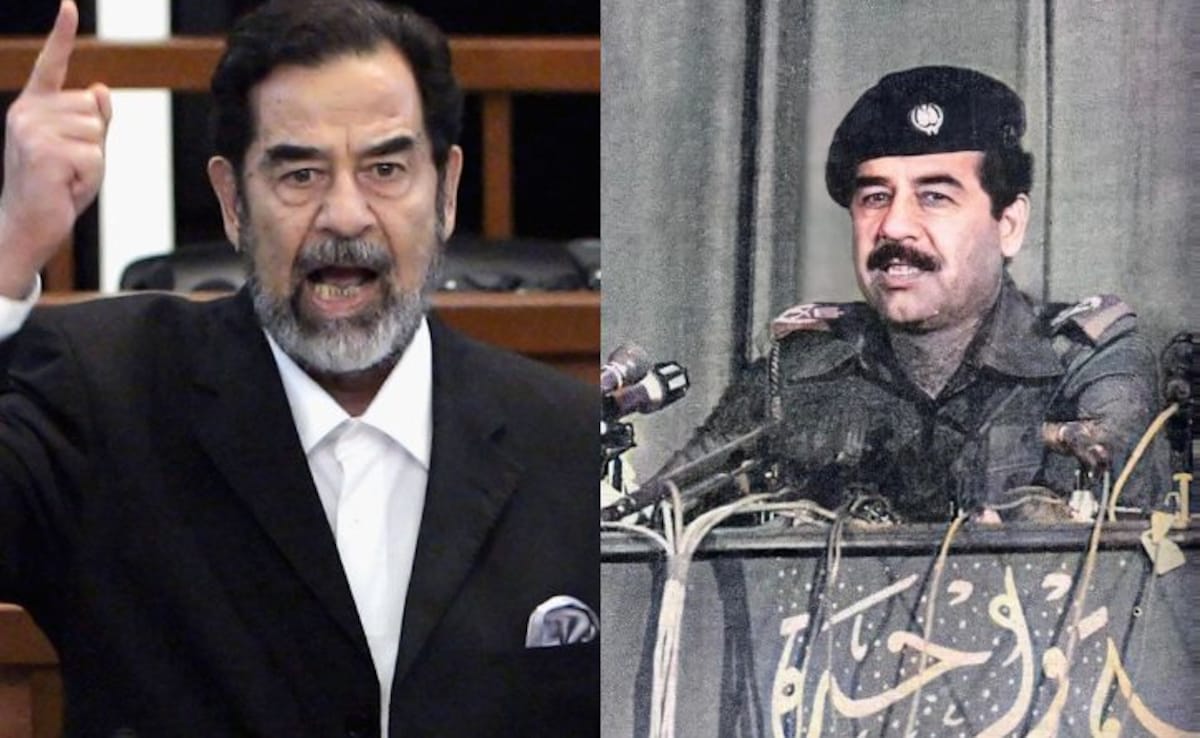China's Response To Iran Conflict: A West-Loss Scenario

Welcome to your ultimate source for breaking news, trending updates, and in-depth stories from around the world. Whether it's politics, technology, entertainment, sports, or lifestyle, we bring you real-time updates that keep you informed and ahead of the curve.
Our team works tirelessly to ensure you never miss a moment. From the latest developments in global events to the most talked-about topics on social media, our news platform is designed to deliver accurate and timely information, all in one place.
Stay in the know and join thousands of readers who trust us for reliable, up-to-date content. Explore our expertly curated articles and dive deeper into the stories that matter to you. Visit Best Website now and be part of the conversation. Don't miss out on the headlines that shape our world!
Table of Contents
China's Response to the Iran Conflict: A West-Loss Scenario?
The escalating tensions surrounding Iran have put China in a complex geopolitical chess game. Its response, a delicate dance between maintaining its economic interests and navigating precarious international relations, is shaping up to be a potential turning point, and some analysts suggest a scenario where the West could ultimately lose out. This article delves into China's calculated strategy, exploring the potential implications for the global order and the future of the Middle East.
China's Balancing Act: Economic Ties vs. International Pressure
China's relationship with Iran is multifaceted. It's a significant trading partner, with substantial investments in Iran's energy sector and infrastructure projects – the Belt and Road Initiative (BRI) being a prime example. These economic ties are substantial and cannot be easily discarded. However, China also faces increasing international pressure, particularly from the West, to condemn Iran's actions and curtail its support. This pressure comes from concerns about Iran's nuclear program, its support for regional proxies, and its human rights record.
Navigating the Sanctions Tightrope:
China has carefully walked a tightrope, avoiding direct confrontation with the West while simultaneously maintaining its lucrative economic partnerships with Iran. It hasn't openly defied international sanctions, but its actions suggest a willingness to push the boundaries. This includes continued trade and investment, albeit often conducted through opaque channels to minimize direct exposure to Western sanctions. This strategy showcases China's ability to exploit loopholes and leverage its economic clout to its advantage.
The BRI's Strategic Role:
The Belt and Road Initiative plays a critical role in China's strategy. Iran is a key node in this ambitious infrastructure project, providing China with access to crucial trade routes and energy resources. Maintaining its involvement in Iran, therefore, is vital for the BRI's continued success and China's broader geopolitical ambitions. Any significant disruption in the region could severely undermine the BRI and China's plans for global dominance.
A Potential West-Loss Scenario:
Some experts argue that China's nuanced approach could lead to a West-loss scenario. If China successfully maintains its economic ties with Iran while mitigating the risks associated with Western sanctions, it could significantly increase its influence in the region at the expense of the West. This would involve:
- Increased economic leverage: China would solidify its position as Iran's primary economic partner, further marginalizing Western influence.
- Geopolitical gains: China's growing presence in the Middle East could shift the regional power balance, potentially leading to increased instability for Western interests.
- Weakened sanctions regime: China's ability to circumvent sanctions could undermine the effectiveness of Western foreign policy tools, creating a precedent for other countries to follow.
The Uncertain Future:
The future of the Iran conflict, and China's role within it, remains uncertain. The West's response to China's actions will be crucial in determining the outcome. A more aggressive approach could escalate tensions, potentially leading to a confrontation. A more conciliatory approach might allow China to further consolidate its influence without triggering a major conflict. Ultimately, the situation underscores the growing complexity of global politics and the increasing importance of China as a major global player.
What's Next?
Closely monitoring China's actions and the West's response is crucial. Further analysis is needed to fully assess the long-term consequences of China's strategy and whether it truly represents a "West-loss" scenario. The stakes are high, and the implications for the global order are profound. Further research into the evolving dynamics between China, Iran, and the West is essential for understanding the future of the Middle East and global geopolitics.

Thank you for visiting our website, your trusted source for the latest updates and in-depth coverage on China's Response To Iran Conflict: A West-Loss Scenario. We're committed to keeping you informed with timely and accurate information to meet your curiosity and needs.
If you have any questions, suggestions, or feedback, we'd love to hear from you. Your insights are valuable to us and help us improve to serve you better. Feel free to reach out through our contact page.
Don't forget to bookmark our website and check back regularly for the latest headlines and trending topics. See you next time, and thank you for being part of our growing community!
Featured Posts
-
 From Bramble Bush To Tze Elim Bet Examining The Catastrophic Fallout Of A Mossad Operation
Jun 22, 2025
From Bramble Bush To Tze Elim Bet Examining The Catastrophic Fallout Of A Mossad Operation
Jun 22, 2025 -
 Mossads Failed Saddam Plot Operation Bramble Bush And Its Deadly Aftermath
Jun 22, 2025
Mossads Failed Saddam Plot Operation Bramble Bush And Its Deadly Aftermath
Jun 22, 2025 -
 Jaws At 50 How Spielbergs Masterpiece Redefined Shark Cinema And Pop Culture
Jun 22, 2025
Jaws At 50 How Spielbergs Masterpiece Redefined Shark Cinema And Pop Culture
Jun 22, 2025 -
 Long Term Lockheed Martin Stock Investment A 20 Year Growth Examination
Jun 22, 2025
Long Term Lockheed Martin Stock Investment A 20 Year Growth Examination
Jun 22, 2025 -
 Trump Approval Rating Fluctuation Following Large Scale Immigration Protests
Jun 22, 2025
Trump Approval Rating Fluctuation Following Large Scale Immigration Protests
Jun 22, 2025
Latest Posts
-
 Mlb Suspensions Follow Heated Dodgers Padres Finale
Jun 22, 2025
Mlb Suspensions Follow Heated Dodgers Padres Finale
Jun 22, 2025 -
 Ex Mlb Player Cozart Draws Line On Trump Support Over War
Jun 22, 2025
Ex Mlb Player Cozart Draws Line On Trump Support Over War
Jun 22, 2025 -
 Sean Combs Trial Ex Assistants Testimony Sheds Light On Case
Jun 22, 2025
Sean Combs Trial Ex Assistants Testimony Sheds Light On Case
Jun 22, 2025 -
 Under Pressure How The Israel Iran Conflict Impacts Qatars Regional Role
Jun 22, 2025
Under Pressure How The Israel Iran Conflict Impacts Qatars Regional Role
Jun 22, 2025 -
 Trump Approval Rating Fluctuation Following Large Scale Immigration Protests
Jun 22, 2025
Trump Approval Rating Fluctuation Following Large Scale Immigration Protests
Jun 22, 2025
